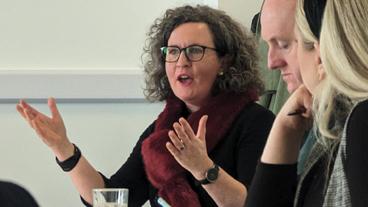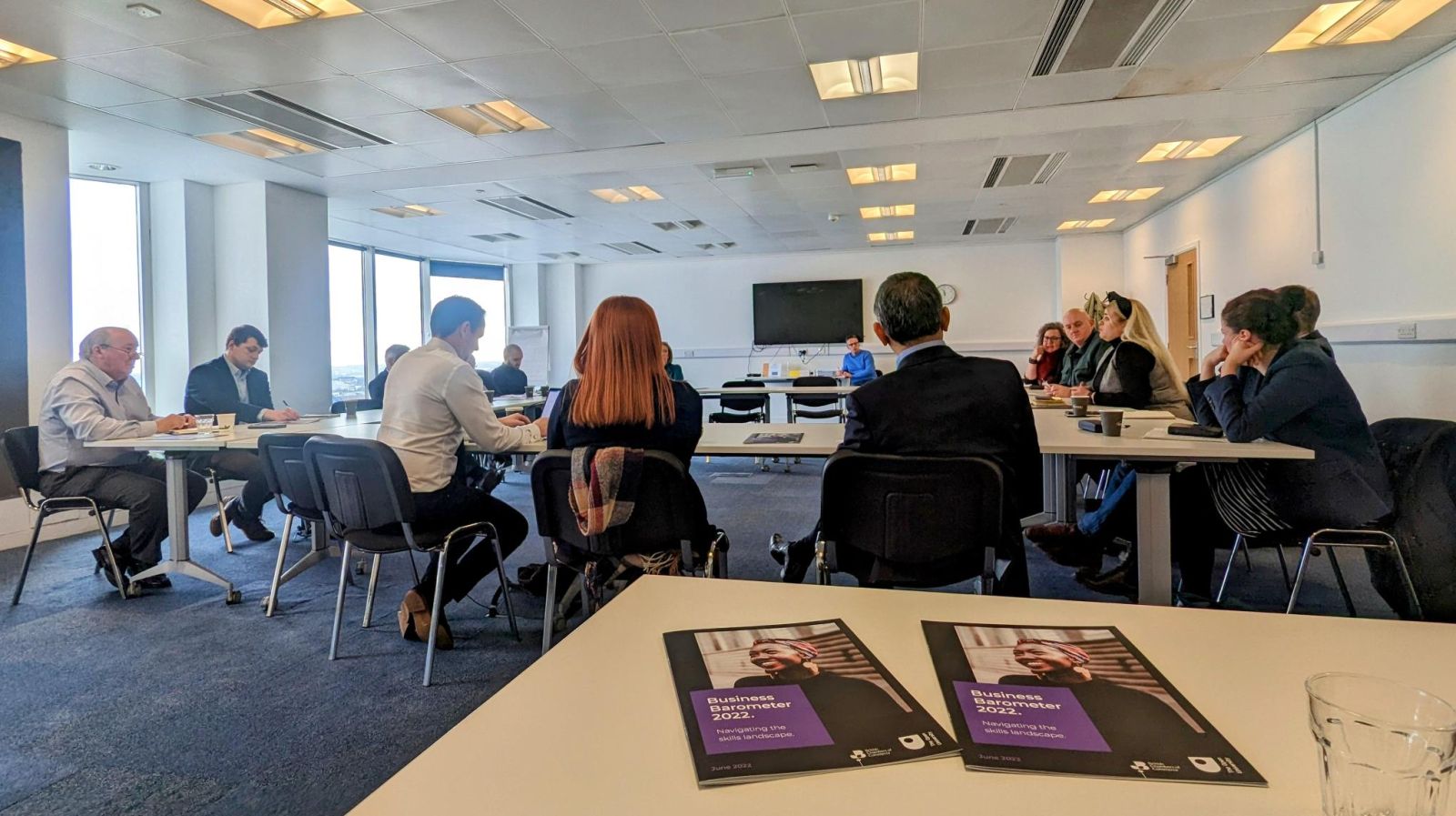You are here
- Home
- West and North Yorkshire business leaders share workforce challenges
West and North Yorkshire business leaders share workforce challenges

The Open University (OU) and the West and North and Yorkshire Chamber of Commerce recently hosted a roundtable in which local business and educational leaders discussed a variety of challenges that are facing organisations in 2023.
The session was chaired by James Mason, Chief Executive of the West and North Yorkshire Chamber of Commerce and formed part of a series of UK events discussing local issues arising out of the Business Barometer, an annual report into the UK skills landscape published by the OU, now published in partnership with the British Chambers of Commerce.
Guests from a wide range of backgrounds, including local authorities to large finance companies, were welcomed by Viren Patel, Director of Employers and Partnerships at the OU. Viren explained the background to the 2022 report.
Recurring themes
This is an annual report. Each year, the data tells us that there’s a long-term, structural skills shortage. The report tells us three in four organisations in the North of England have suffered from skills shortages. But in this report, it has been impacted by issues such as the pandemic and issues related to the war in Ukraine.
Next year we are likely to see the cost of living crisis and rising business costs also having a growing impact on how employers can react.
Viren Patel
Director of Employers and Partnerships, The Open University

The guests shared some of the issues employers faced, including wage competition from the South of England, and a particular lack of digital and data skills within some demographics of staff. Participants remarked that “the future of work is already here” with the pandemic turning “all companies into tech companies at a pace.”
A particular challenge was highlighted around the lack of work-readiness of some younger workers who had missed out on face-to-face employment and education due to the pandemic. The myriad of options available to workers outside the commitment of apprenticeships was also a challenge. The learning providers in attendance hoped that the apprenticeship brand could continue to be better understood and employers hoped that curriculums could be further enhanced to cover business priorities such as data and green skills to ready the workforce for future needs.
Finding solutions together
Local Skills Improvement Plans were identified as ideal places for local skills providers and employers to solve challenges together by opening up conversations, and these have been supported by the local chamber as the first meetings have recently taken place.
The competition for skills took the panel into a discussion about organisational ethics, investment in staff learning, work-life balance and wellbeing support, noting these as key drivers of attracting and retaining talent. This was particularly in relation to younger workers who can see career development through a longer-term lens and have a keen interest in their employer’s culture and values.
You might also like...
Find out how we can help your organisation
Please contact us to speak to one of our business team advisors.
Not on our mailing list?
Sign up to receive regular emails that are full of advice and resources to support staff development in your organisation.


